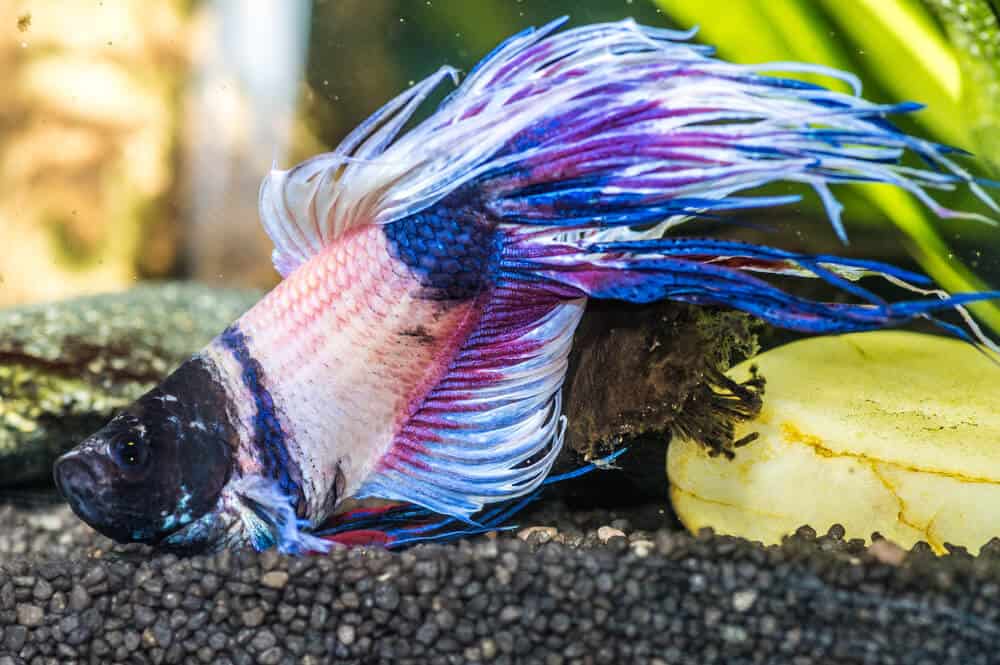

Baby fry should be fed 3-5 times per day, very small meals. Baby bettas, from fry to 4-6 months of age, should be fed food intended for baby fish, not necessarily bettas. How often do you feed a baby betta fish?īaby fish, along with actively breeding fish, need to be fed more protein and fat than their adult counterparts. Checking the parameters of your tank is the first important thing to check if you think chemicals may be what is causing your betta’s lack of appetite. Make sure your tank has a reliable thermometer and always have a spare heater handy. GH: 3-4 dGH Nitrate: 10-20ppm Ammonia and Nitrite: 0 ppm Many tank testing kits are available at popular pet retailers and online. Do not trust your heater to work without checking it. Knowing your tank temperature is critical for good betta health. This will prevent too much food from being in the intestines at once. Be sure to spread more frequent meals out 4-6 hours apart. You can feed up to three meals a day if your fish is currently breeding or at the warmer end of the temperature range (80-82F/27-28C). Starting with at least two meals a day, provided your tank is at the correct temperature, space your meals at least 6-8 hours apart. How often do you feed a betta fish a day? All fish can easily eat dry pellets and soaking only decreases their nutritional content. You do not need to soak your fish’s pellets prior to feeding. This could be as few as 2 or 3, or up to 6 or 7, depending on the brand you choose. Since pellet size varies so widely, it is recommended that you feed the amount of pellets that would theoretically fit inside your fish’s eyeball per meal. We have NEVER seen a betta actually finish a container of food. Once you have selected a diet for your betta, it is critical that the container is stored properly and replaced every 6 months. How many pellets do I feed my betta fish a meal?

Although changing the temperature may slow the disease progression, you may also weaken your fish’s defenses. Please do not manipulate your fish tank’s temperature to try and combat any suspected diseases unless directed by a veterinarian. Outside of this range, their immune function and digestion may not be operating well, causing gastrointestinal and other health issues. Bettas do best in temperatures between 76-82F (24-28C). Remember, when keeping any fish, maintaining optimal temperature for their species is critical. Along with inappropriate water temperatures, overfeeding can lead to a very dangerous gastrointestinal condition that can kill your betta. This is especially important considering that many betta fish tend to be overfed, receiving large meals infrequently. Your price does not change.**Ī common question we are asked, is “how often do you feed a betta fish?” Given their tropical nature, like most other warmer tanks, bettas need to be fed at least twice a day. We make a small percentage from our recommendations.


 0 kommentar(er)
0 kommentar(er)
